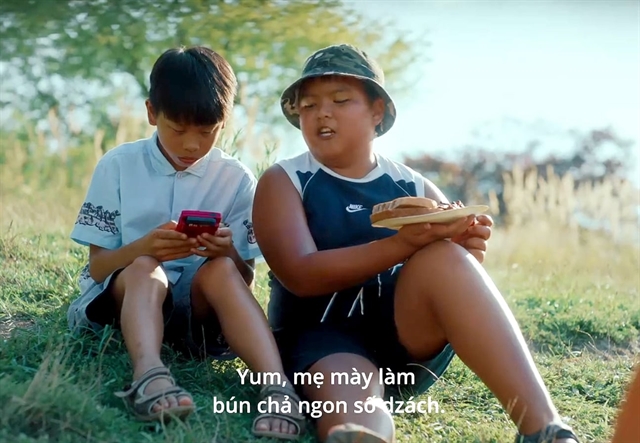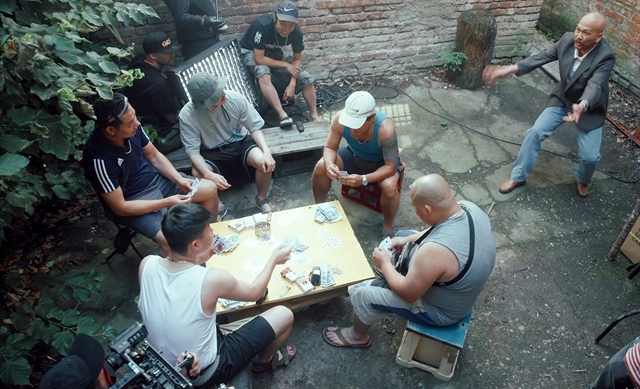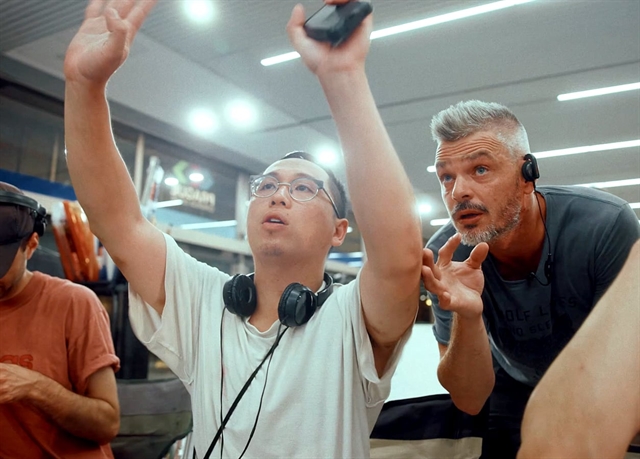The film 'Summer School, 2001' by young overseas Vietnamese director Dương Việt Đức has had its world premiere in a special screenings section at the 59th Karlovy Vary International Film Festival 2025 in Karlovy Vary, Czech Republic.

A scene from 'Summer School, 2001' by overseas Vietnamese director Dương Việt Đức. The movie will hit cinemas on July 24. Photos courtesy of Tamdamedia
HÀ NỘI — The film Summer School, 2001 by young overseas Vietnamese director Dương Việt Đức has had its world premiere in a special screenings section at the 59th Karlovy Vary International Film Festival 2025 in Karlovy Vary, Czech Republic.
The movie, which is considered the “first feature from the Vietnamese community in the Czech Republic”, received praise for its authenticity, humour and emotional resonance.
It tells the story of a Vietnamese teenager who returns to live with his family in the Czech town of Cheb after 10 years, igniting tensions in a long-fractured household.
The narrative unfolds from multiple perspectives, exploring inner psychology, masculinity and family dynamics, particularly the relationships between father, son and brother.
The idea was developed over eight years in a collaboration between Đức, producer Lukáš Kokeš and Jan Smutný. The cast featured non-professional actors from the Vietnamese community, handpicked from markets, nail salons and online forums to ensure authenticity.
Filming took place in the Czech Republic, Slovakia and also in Việt Nam.
"I want to let Vietnamese parents understand that for their children, the time they spend with them is very precious," said Đức, also known as Dužan Duong.
"They should not spend too much time on making money, but spend it on their children instead. That is the biggest message I want to convey to the Vietnamese community."

The crew and actors of 'Summer School, 2001' filming a scene.
Summer School, 2001 marked a cinematic milestone for the second generation of overseas Vietnamese, offering a multicultural voice rich in emotion.
Its premiere at Karlovy Vary was a landmark event that paves the way for future cross-border projects by Vietnamese filmmakers.
The film received enthusiastic reviews, with some critics even saying it “deserved to be in Cannes” due to its exceptional quality.
It will be officially released in most cinemas across the Czech Republic on July 24.
"I first met Duong when I was filming a 30-minute documentary about the younger generations of the Vietnamese community while he was at FAMU, and we kept in touch," said Kokeš.
"When he told me about his idea of making a short film about his trip to Việt Nam with his brother, we exchanged ideas so that the film could be more comprehensive and seen by the Czech people, and from there we worked together to create today's Summer School, 2001."
He added that through the film, people in the Czech Republic who go shopping at Vietnamese stores and eat at Vietnamese restaurants will better understand the difficulties that Vietnamese families often have to go through living away from home.
"I am very happy. I think this is a movie with positive energy and a certain attraction. It is humorous, but also full of drama. And importantly, it has a reason to draw Vietnamese people to the cinema," he said.

Director Dužan Duong (left) in action during the film production process.
Born in 1991 in Hà Nội, Duong moved to the Czech Republic at age four and grew up in Cheb, in the Sudeten region. He studied banking and insurance at the University of Economics in Prague and briefly studied editing at the Film and TV School of the Academy of Performing Arts (FAMU), also in Prague, but did not complete the programme.
A self-taught filmmaker, he works as a director, cinematographer and editor, and is co-founder of the production group AZN KRU.
Prior to Summer School, 2001, Duong debuted with a docu-fiction short called Mất Gốc (Lost Roots), which was screened at Ji.hlava International Documentary Film Festival in 2014. Three years later, his short film Bố Hải (Father Hai) won Best Director at FAMUFEST, received recognition at Finale Plzeň and was nominated for the Czech Film Critics’ and Magnesia Awards. VNS